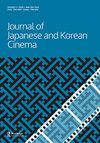Feminism reboot: Korean cinema under neoliberalism in the 21st Century
引用次数: 2
Abstract
ABSTRACT This paper examines recent feminist movements, which I am grouping together under the term ‘feminism reboot’, in the context of South Korea’s neoliberalization, with a focus on misogyny levelled against women. It first traces the emergence of social media-based feminism in Korea, following the democratization and market liberalization since the late 1980s and subsequent Korean films that used to showcase more diverse types of female characters up until the mid-1990s. But as misogyny intensified after the 1997 economic crisis, film narrative increasingly revolves around male characters, while female characters often disappear. This trope could be seen to register the gendered nature of Korean society that resulted from the rapid acceptance of neoliberal values in the aftermath of the 1997–98 Asian financial crisis. This paper compares and contrasts the romantic comedies of the 1990s, such as Marriage Story (Gyeolhon yiyagi, Kim Eui-seok, 1992), Mister Mama (Misteo mamma, Kang Woo-suk, 1992) and the comedy of the 2010s, including Sunny (Sseoni, Kang Hyeog-cheol, 2011) in order to demonstrate how the economic crisis not only re- legitimized the gender hierarchy and has further affected the cinematic representation of gender, taking away female agency in the latter period.女权主义重启:21世纪新自由主义下的韩国电影
摘要本文考察了最近的女权主义运动,我将其归类为“女权主义重启”一词,在韩国新自由主义的背景下,重点关注针对女性的厌女症。它首先追溯了韩国基于社交媒体的女权主义的出现,自20世纪80年代末以来的民主化和市场自由化,以及随后的韩国电影,直到20世纪90年代中期,这些电影一直在展示更多样类型的女性角色。但随着1997年经济危机后厌女症的加剧,电影叙事越来越多地围绕男性角色展开,而女性角色经常消失。这种比喻可以被视为反映了1997-98年亚洲金融危机后韩国社会对新自由主义价值观的迅速接受所产生的性别本质。本文比较了20世纪90年代的浪漫喜剧,如《婚姻故事》(Gyeolhon yiyagi,Kim Eui-seok,1992)、《妈妈先生》(Misteo mamma,Kang Woo-suk,1992)和2010年代的喜剧,包括Sunny(Sseoni,Kang Hyeog-cheol,2011),以证明经济危机不仅使性别等级制度重新合法化,而且进一步影响了性别的电影表现,夺走了后期的女性代理权。
本文章由计算机程序翻译,如有差异,请以英文原文为准。
求助全文
约1分钟内获得全文
求助全文
来源期刊

Journal of Japanese and Korean Cinema
Arts and Humanities-Visual Arts and Performing Arts
CiteScore
0.60
自引率
0.00%
发文量
16
期刊介绍:
Journal of Japanese and Korean Cinema is a fully refereed forum for the dissemination of scholarly work devoted to the cinemas of Japan and Korea and the interactions and relations between them. The increasingly transnational status of Japanese and Korean cinema underlines the need to deepen our understanding of this ever more globalized film-making region. Journal of Japanese and Korean Cinema is a peer-reviewed journal. The peer review process is double blind. Detailed Instructions for Authors can be found here.
 求助内容:
求助内容: 应助结果提醒方式:
应助结果提醒方式:


